Why do people work? Think back over your career. Think of the most difficult times, the most enjoyable times, the laughs, and the satisfaction. The challenges and difficulties.
At the sunset of your career, what do you envision the purpose of all that sunk time working to have been?
Is it to line your pockets, to create a cushy life for you and yours?
Or is it something else, maybe even golden handcuffs?
What is the purpose of work?
I’ve been thinking a lot about these questions and I don’t think I’m alone in that.
Jenni and I were on our evening stroll around our neighborhood earlier. Fall is on the horizon, we were a little more bundled up than normal. As we tend to do on these jaunts, we talked about the day’s goings-on and what we were each working on. Jenni mentioned she’d be working a bit more this week than her (recently) normal ~1-2 days/week. I asked why, curious as to what was driving her. She explained she wanted to catch up on some of the projects she cares about as she’s been falling behind while having to fill-in for other coworkers on vacation. She said:
I’m not doing anything else, why not work now?
Person who might work ’til they’re dead
I responded in a little bit of a negative way, “what do you mean you’re not doing anything else?!”
I was worried about how easy it is to slide back into work. That’s doubly true when you don’t really mind the work, they pay you well, and they want you to work (triply?).
I was there once, too. I thought back on how much work has tried to claw me back.
Why Do People Work?
“Golden handcuffs”, or an employer’s incentives to keep you working, are all too real and enticing. They’re more of a soft velvet handcuff, scented in gardenia. They might even have some secretive intravenous method to pump you full of just the right mixture of dopamine and endorphins. More than just tempting, they’re also addictive and entangling. Sometimes we sadly answer the question of “why do people work” with a singular answer: money.
The worst form of golden velveteen handcuffs is those in disguise. They come with the promise of ease and luxury. For just a bit more of your time, you’ll earn the chance to be lauded by your colleagues with many an “attaboy”.
Oh, you still have more time?
How about the promise of industry recognition?
You’ll be buttered up one side while your time is siphoned off down the other. Between the BMW and corner office, you won’t realize it happened.
I mean, who doesn’t want fame within their industry (just don’t ask the famous)?
What now, you’re curious about the work itself?
Hush now. It doesn’t matter what the work is. You sweet summer child.
Punch the numbers, input the clock. Repeat. Punch clock. Input numbers.
Be the cog.
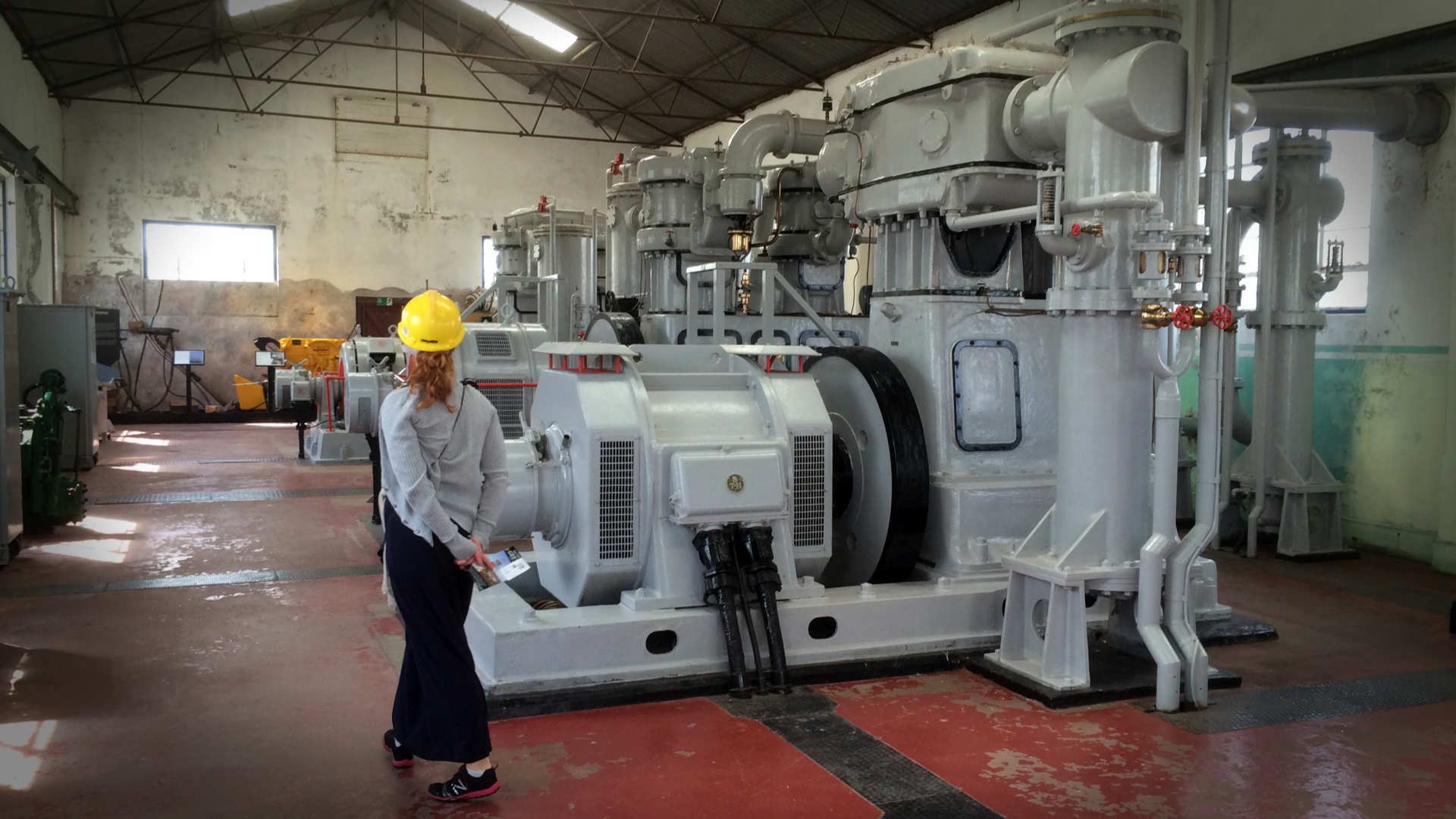
Business is trying to answer the question in its own way. “What’s the purpose of a business?”, recent studies have asked. While organizations struggle to answer, their end goal remains the same: to make more money.
But is that really the reason for why people work?
Reasons why we work
We rested from our stroll at the peak of an art garden on a bench, the sun sharp on the horizon in the early evening.
I asked Jenni about what she said and listed off the many projects, hobbies, and pursuits we’ve begun as she’s made the switch to part-time work. She just finished a post on her big patio project and conquering DIY fears! How’s that “not anything else”, I asked.
Of course, what she meant was bigger adventures: foreign slow travel, local volunteerism, long visits with friends and family around the country. These reasons for why she’s worked have been held up or at least minimized by the pandemic.
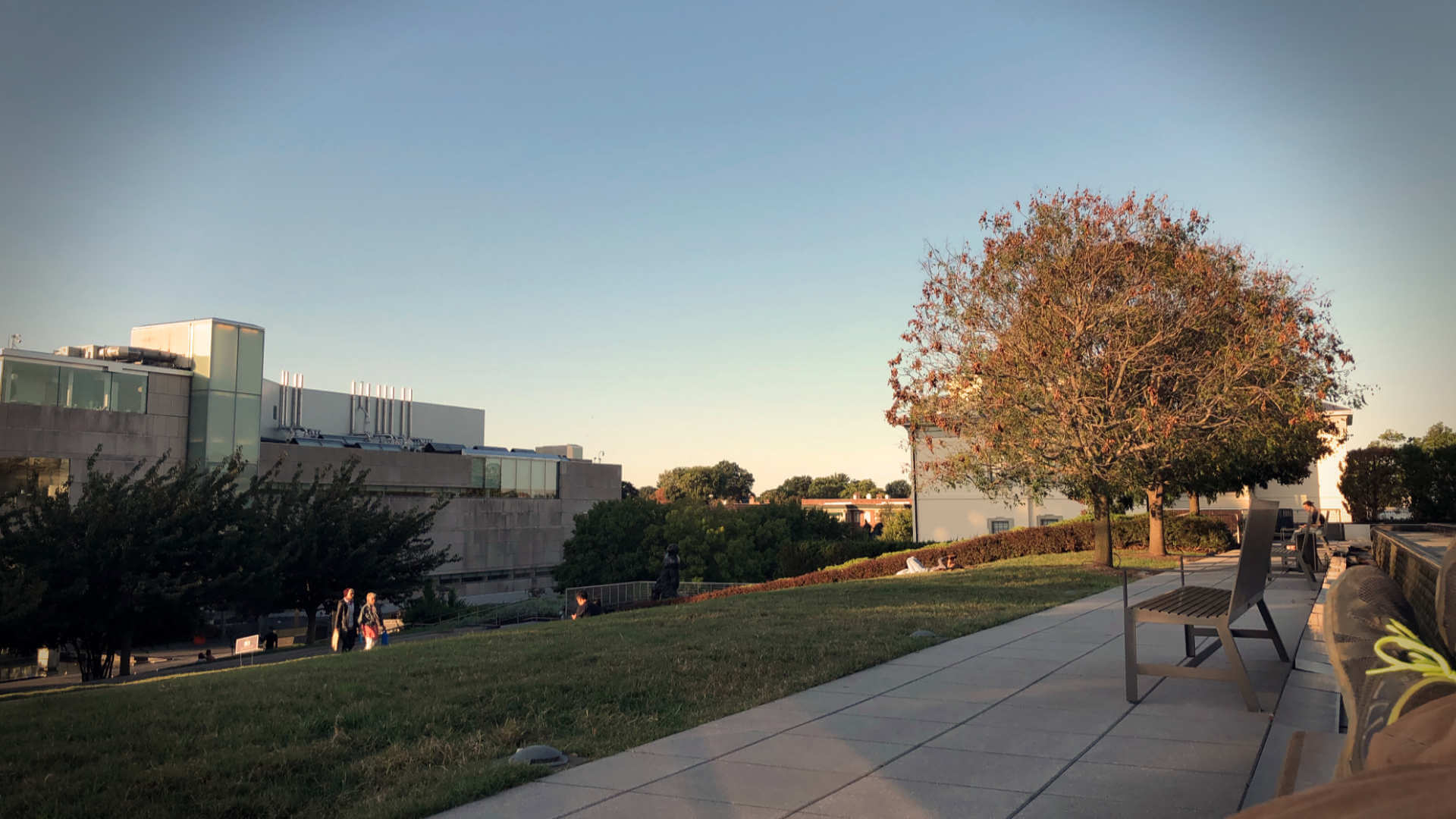
What is the purpose of work?
At the outset of this article, I asked you to think back on the challenges in your career and the positive highs you’ve felt. Did you think of monetary wins: a bonus, a promotion?
Some of you likely did, but most probably thought of something else:
- The project that was filled with seemingly insurmountable challenges
- Making a sale that forced you to try a new approach from the tried and true
- Product development that required you to stretch your mind in a novel way, breathing to life something new
Undoubtedly your experience that you remember best, surmounting the challenge ahead of you, required some genuine outside the box thinking. The commonality among those meaningful parts of work is in the novelty of the task at hand combined with the new methods you employ to combat the challenges.
It’s the opportunity to apply your creative side that gave the work meaning for you.
Finding purpose in work
The purpose of your work is not to repeat the rote procedure. Even as the routine might be necessary at first, the goal and satisfaction come from removing routine through creative work. This isn’t just in mechanical, industrial processes, but in art as well.
Do you believe a great artist would find satisfaction and purpose by churning out small variations of an existing artwork of theirs?
Michelangelo wasn’t sitting around making variants of David for his sponsors.
In fact, he didn’t even move from David to another sculpture. His next project was the Sistine Chapel ceiling, an entirely new sort of challenge to his creativity. That doesn’t mean he didn’t have to work to bring his creative vision to life.

“The greatest artist does not have any concept
Which a single piece of marble does not itself contain
Within its excess, though only
A hand that obeys the intellect can discover it.”
— I Sonetti Di Michelangelo: The 78 Sonnets of Michelangelo with Verse Translation
Michelangelo suggests that it’s only through the creativity of our mind that we can discover greatness. He’s saying quite directly that greatness already exists, but you must find it through intellectual creativity and work to remove the excess which hides it. The difference between creativity and rote production is having an end goal in which novelty is created.
Why do people work? The purpose of work is not an outcome of repetition, it’s newness.
A sense of purpose at work
Newness and creative vision that supports it is what makes the difference between the unsatisfying work of a factory production line and the subtle experimentation, feedback, and improvement loop of an artist seeking perfection.
The 2011 documentary Jiro Dreams of Sushi exemplifies this lifelong pursuit of improvement in one’s work. Roger Ebert wrote:
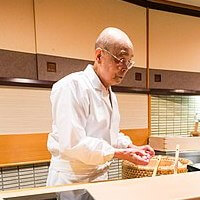
“If you find an occupation you love and spend your entire life working at it, is that enough?
Standing behind his counter, Jiro notices things. […]
— Roger Ebert
He knows his staff has recently started massaging an octopus for 45 minutes and not half an hour, for example. Does he search a customer’s eyes for a signal that this change has been an improvement?”
As the master of sushi, Jiro has spent decades producing the same final product: a piece of food, ephemeral in its short existence.
Wouldn’t that suggest that Jiro has merely created a fine-tuned sushi factory line?
Hardly.
Jiro’s process is one of constant evaluation, experimentation. Each customer has a different experience from another: right-handed folks are seated differently from lefties. Customers don’t choose what to eat, the head chef does for them.
Jiro’s ability to maintain a passion for his craft is in his goal to reach a pinnacle of sushi perfection even as he realizes the impossibility of such a task. As he nears perfection in his craft, his experimentation becomes increasingly minute to eke out improvement, but he doesn’t accept any less than better each time.
Jiro’s goal is not one of routine, he’s applying his intellect to remove excess in order to create his own art.
Why Do People Work Hard but Retire Early?
As Jenni and I plodded down the steps of the art garden with the cool evening air seeping in to replace the setting sun, we spoke more on the newly freed time she and I both have with our pursuit of retiring early.
I prodded her about her time, “I think you need to incorporate more time to create in your schedule.”
Like many first reaching financial independence, her creative energy has been directed and absorbed by her employer for so long that it’s jarring to be free and on your own. The creative possibilities that open up to a life of work on your own terms can paradoxically be paralyzing.
Some seem to even believe that work stops upon retiring (early or not)!
I’d argue that financial independence merely frees a person to true choice in their work, it’s more a beginning than it is an end.
Personally, I have no desire to cease my own ever-evolving form of work even as money ceases to become a driver of that work. The purpose of earning money is to have enough money, no more, no less.
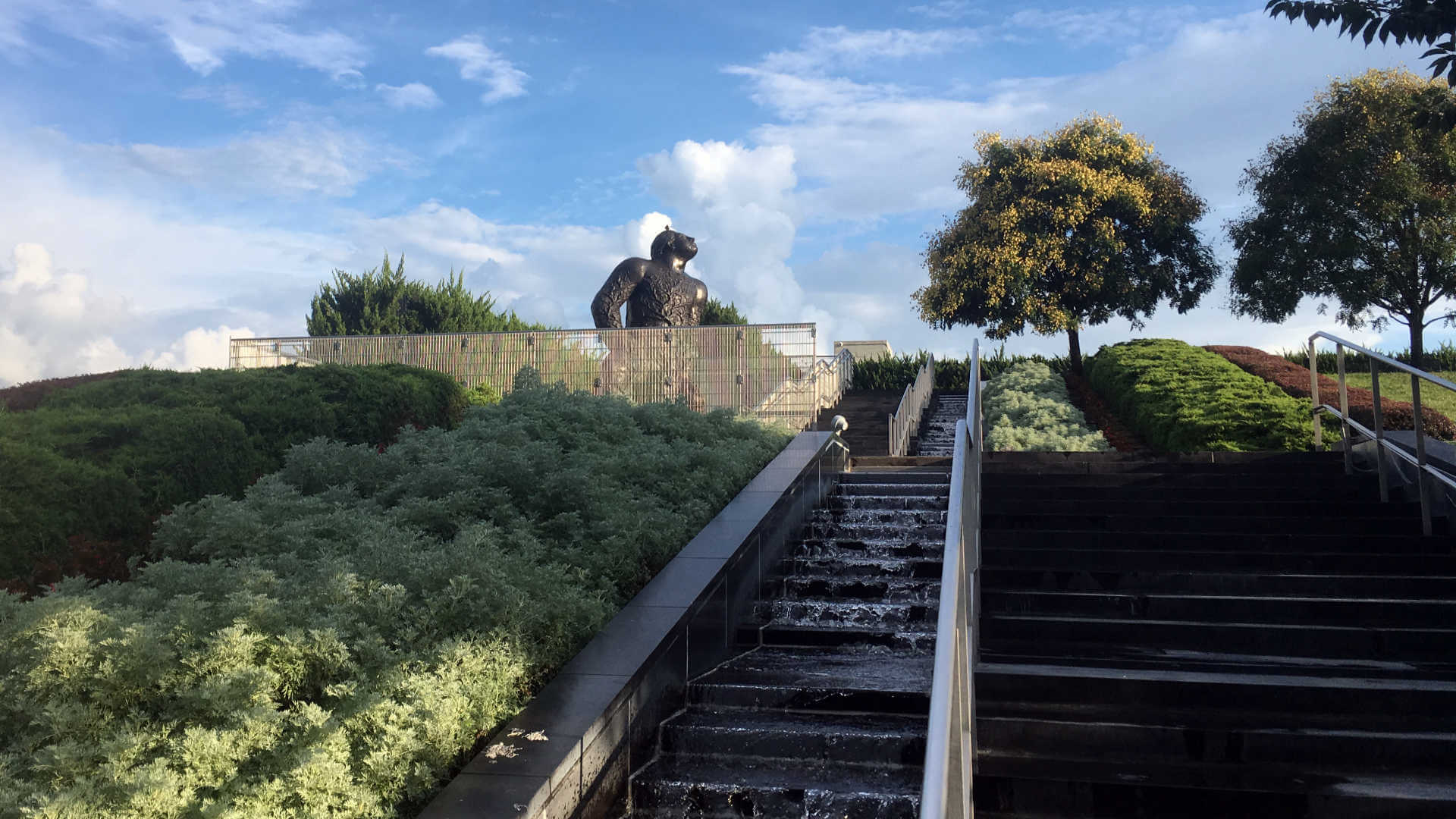
Finding meaning and purpose at work
I have a huge advantage over Jenni when it comes to managing time and finding passionate pursuits in early retirement: I’ve not had a genuine full-time job since 2012. I’d be surprised If I spent more than a thousand hours doing actual work in a single year since then (I’m an avid time tracker with the data to support this).
With all this extra time, I’ve been able to spread my interests far and wide. When I was working full-time, I needed to be at the top of my game in my area of expertise. That meant I needed to go deep but on a narrow set of knowledge topics.
These days, as the pressure is gone to keep up with peer competition, I get a much more varied set of problems to deal with. I’ve become much more of a generalist vs specialist as I’ve worked less.
I’ve filled my time with creative projects and experiments since then, along with some (seemingly) necessary rote production to reach our FI goals. As we crested a million bucks and true “FU money“, can you guess what the first thing was that I removed from my schedule?
I ruthlessly cut anything that looked or felt like routine, mindless work. Even when they offered to pay $200/hr+. The money didn’t matter anymore and that realization let me see the work for what it was. A means to an end, which had arrived.
The work I’m still doing emphasizes creation, and in some novel ways:
- Mentoring folks in my area of expertise with the goal of creating more capable individuals that contribute back to the field and their own mentees
- Supporting non-profit organizations with meaningful missions to create good within society, especially those closely aligned with my own ideals and locality
- Documenting and teaching (I hope!) our experience with reaching financial independence and retiring early through this very blog to create opportunity for others
Some of that ends up being work that has paid me money, some of it isn’t. In fact, I lose money on some of it. But, in either case, it doesn’t really matter. Like Jiro or Michelangelo, my goal is to chisel away the excess in order to create something meaningful to someone.
Why do people work? The purpose of my work is to create.
The Purpose of Work Is to Create
By the time Jenni and I reached the entry to our historic little neighborhood, we’d been batting back and forth different creative ideas for her to pursue. She intends to refurbish our teak mid-century modern dining set herself, an opportunity to work on her upholstery skills. Our bathroom needs a new coat of paint (and some plasterwork to go with it!).
She’s a crafty person with a variety of physical creation skills that’ll go into some seasonal decor for the fall, fresh paintings as gifts to family and friends, and perhaps an opportunity or two for me to join her artistic pursuits as an excuse to be a little closer to her.
I don’t know what creative pursuit will eventually really drive her forward.
Will it be physical art? Digital creations like this blog (which is a significant creative outlet for me)?
Will she continue to contribute back to her area of expertise in pharmacy to define creative solutions to interesting problems?
So, what do I think about the answer to “why do people work?”
I’m okay with not knowing the specific answer for us as individuals. Financial independence frees us to pursue creative work that is of interest to us, to experiment, and to improve. Our work becomes more honest and more representative of us. I know that our purpose for work will continue to be some form of creation.
Why would work that fulfills our creative purpose ever stop?
While my opinion is that the purpose of work is to create, what do you think? Perhaps you’re more focused on the greater good, achieving status, or something else?
Let me know in the comments!

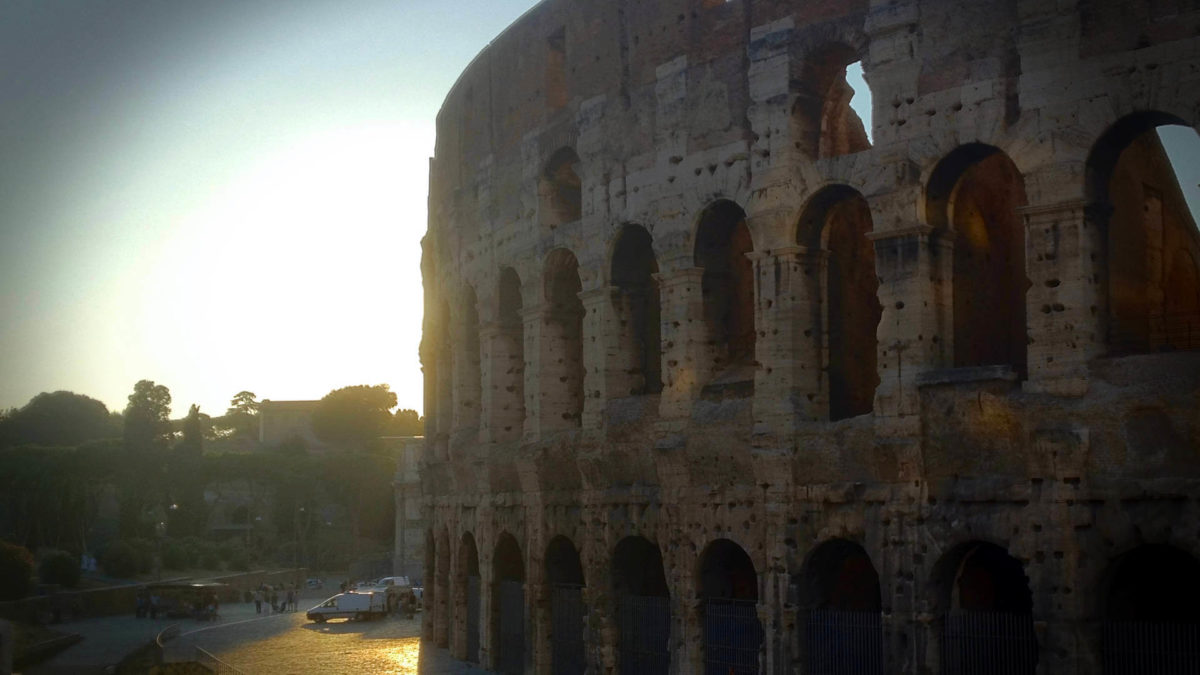
9 replies on “Why Do People Work? The Purpose of Work Is to Create”
Wow, yours and Jenni’s lives sound strikingly parallel to mine and my husbands. By being a post-doc and now professor my husband has the luxury of not having to work full 40-hour work weeks and to create his own schedule. I’ve always been a little envious of that 🙂 Since our move to Germany I have had the luxury of experiencing a (mini) pre-retirement. It is, like you said, both paralyzing and freeing. I initially felt this guilt for not working in a traditional way, as though I was not giving enough back. And, like you, my husband would have to remind me of all the work I had done and that it meant something even if it wasn’t for a paycheck. It took constant effort, at least in the beginning, to really enjoy this new found freedom where I could explore and try new things without having to worry about money. This idea of needing to work, that I must have a paycheck, was so ingrained in my mindset. Over the last nine months I’ve come to realize that what’s important to me is really the opportunity to create and collaborate. Coming from a design + psych background, I love the blending of skills, personalities and experiences people bring to a project and the challenges that go along with trying to complete one together.
A lot of this reminds of me famous psychologist Abraham Maslow and his theories around human needs and what drives us once our basic needs are met.
By the way, this post was so beautifully written (I mean, all of yours are). But something about this one in particular was really comforting to read. I like how you seamlessly blend poetic descriptions alongside the practical, logical thought process and philosophical. Well done!
Liz, as is often the case, thanks for putting some real effort into your thoughts and feedback. I really appreciate your time.
Being able to see something like that, clearly, is pretty invaluable. I’m sure the both of you will find some value beyond the monetary in recognizing what’s important for you.
So far as Maslow, well, I think self-actualization goes hand-in-hand with folks who reach FI and contemplate life beyond the traditional path of school, work, family, death (not that you can’t self-actualize with the more traditional path, but that it’s harder). One day, I’ll have to write something up that ties it together nicely. I remember writing on the hierarchy of needs and (something like FI) a decade ago to myself. I’ll have to dig out those journals again. 🙂
And, last but not least, thanks so much for the kind words about the writing itself. I hope it’s enjoyable. A lot of personal finance can be a bunch of boring numbers and though a direct approach to educating about it can be very useful, I try to bring in a little story to make it more relatable.
Cheers! Hope the move prep is going well for you both.
I loved my work because it allowed me to achieve mastery in my field. It also brought me a lot of notoriety and opportunities to perform on television, YouTube and in the press. I did eventually get tired of the sheer volume and significant personal legal risk of my work and retired with more millions than I needed, but I still work about eight hours a week, for $200 plus per hour, because I enjoy the feeling that earning gives me and the social contact and mental challenges that come from negotiating deals. But I also do much unpaid volunteer work and pursue a half dozen active outdoor hobbies with my spouse. I think work is a reward in itself, that nobody is truly happy without work in their life. It may not be paid work or it may be, but if you are happy I guarantee I can point out how much of your time is consumed by something that could only be defined as work.
If you do come back around to this reply, I’d love for you to expand a little on your thoughts about work and its meaning. While my direction is a focus on creation as the purpose, I interpret yours as more of the fulfilling nature of the work itself (even where it isn’t creation in the traditional sense).
What do you find fulfilling, or rewarding as you said, about work itself? Can you expand on how that might apply to others that don’t have your specific job/position?
Cheers! Love to hear differing points of view.
Great piece. I think it’s satisfaction. Work that brings satisfaction is one of the greatest joys of life. For me, if at the end of the day I can sense a sort of progress from my day’s work, I feel content. And that’s really the feeling I’m chasing.
Right now, I don’t care for work: the time spent away from my kids, the commute, the drama etc. but I wonder how I’ll feel once work becomes optional. After I’ve achieved FI. It’s inspiring to see your perspective and pursuits in early retirement.
-HD
Progress towards…a particular end? For example, let’s say your work involves production in some form. We can assume that your work doesn’t have a specific competition; there’s always more. In this regard, what would you find to exemplify progress?
As an example, if you’re an HR worker you likely have a queue of employees that on a schedule that you need to process and work through their problems. There is no end because there’s always more employees and more problems. Is there still progress? Do you think progress is different in this type of work?
And, thank you! 🙂
I’m a it of a phycology nut now I’ve retired early so this post is right up my alley!
All of the behavioral finance and economics side of personal finance is terribly interesting. Glad you enjoyed!
The high points of working when I was an engineer was completing the big multi-years projects. It felt great to get the product out the door. That payoff wasn’t worth all the painful stuff I endured, though. That’s why I left. Now, I work on my blog and a few easy side hustles. Purpose and creativity are the main part of it, but money is an incentive too. There has to be some kind of payoff.